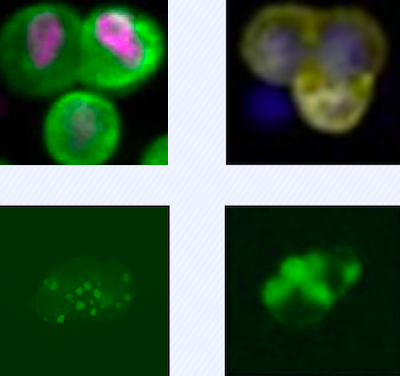Carpenter Lab
Erica Carpenter, MBA, PhD

AR2018 244.jpg) Research Assistant Professor of Medicine
Research Assistant Professor of Medicine
Erica L. Carpenter, MBA, PhD, is the director of the Circulating Tumor Material Laboratory and Research Assistant Professor in the Department of Medicine, Division of Hematology/Oncology at the University of Pennsylvania.
She completed her doctoral studies in the Immunology program of the Biomedical Graduate Studies program at the University of Pennsylvania School of Medicine. She subsequently completed post-doctoral training in the field of cancer genetics at the Oncology Division of the Children’s Hospital of Philadelphia.
Prior to completing her studies in medical science, Dr. Carpenter obtained a Masters in Business Administration at the Tuck School at Dartmouth College, and worked as a business executive for a Fortune 50 manufacturer. Over the course of her business career, she had profit and loss responsibility for divisions with revenues up to $2 billion, and participated in the management of both domestic and overseas business units.
Dr. Carpenter’s NCI-funded research programs focus on the identification, capture, and analysis of circulating tumor cells, exosomes, and cell-free circulating tumor DNA from cancer patients. Capture and molecular characterization of such circulating tumor material from cancer patient blood samples is a rapidly expanding area of translational medicine which allows for: 1) early detection of disease as well as post-therapy monitoring of minimal residual disease, 2) an efficient means of determining clinical and biological response to therapy and, thus, clinical decision making, and, 3) cancer genetic phenotyping to drive personalized medicine that obviates the need for serial biopsies in a population of patients for which such invasive procedures are difficult, risky, and insufficient. The overarching goal of Dr. Carpenter’s research is to utilize molecular profiling of circulating tumor material to improve the delivery of precision medicine by informing individualized treatment decisions, and targeting the most aggressive cancer cells.
Research Interests
The Circulating Tumor Material (CTM) Center, led by Director Dr. Erica Carpenter, focuses on the identification, capture, and analysis of Circulating Tumor Cells (CTCs) and cell-free DNA (cfDNA) from cancer patients. Blood, bone marrow, pleural effusions, and other non-invasively captured patient samples are used to detect biomarkers which allow: 1) early detection of disease as well as post-therapy monitoring of minimal residual disease, 2) an efficient means of determining clinical and biological response to therapy and, thus, clinical decision making, and, 3) cancer genetic phenotyping to drive personalized medicine that obviates the need for serial biopsies in a population of patients for which these procedures are difficult, risky, and insufficient. The focus of the CTM Center is driven by the needs of clinicians and translational investigators, and realized through collaborative work with investigators in the Penn School of Medicine, the Penn School of Engineering, and the Center for Personalized Diagnostics. Moreover, when it is determined that outsourcing of technology development is preferable, collaborative efforts with industry partners are actively sought, and these efforts have already been initiated in focused areas.

 `
`

